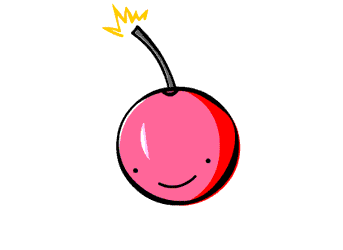Preposition In, On and At
We use :at | in | on |
PRECISE TIME | MONTHS, YEARS, CENTURIES and LONG PERIODS | DAYS and DATES |
at 3 o'clock | in May | on Sunday |
at 10.30am | in summer | on Tuesdays |
at noon | in the summer | on 6 March |
at dinnertime | in 1990 | on 25 Dec. 2010 |
at bedtime | in the 1990s | on Christmas Day |
at sunrise | in the next century | on Independence Day |
at sunset | in the Ice Age | on my birthday |
at the moment | in the past/future | on New Year's Eve |
- I have a meeting at 9am.
- The shop closes at midnight.
- Jane went home at lunchtime.
- In England, it often snows in December.
- Do you think we will go to Jupiter in the future?
- There should be a lot of progress in the next century.
- Do you work on Mondays?
- Her birthday is on 20 November.
- Where will you be on New Year's Day?
Expression | Example |
at night | The stars shine at night. |
at the weekend | I don't usually work at the weekend. |
at Christmas/Easter | I stay with my family at Christmas. |
at the same time | We finished the test at the same time. |
at present | He's not home at present. Try later. |
in | on |
in the morning | on Tuesday morning |
in the mornings | on Saturday mornings |
in the afternoon(s) | on Sunday afternoons |
in the evening(s) | on Monday evening |
- I went to London last June. (not in last June)
- He's coming back next Tuesday. (not on next Tuesday)
- I go home every Easter. (not at every Easter)
- We'll call you this evening. (not in this evening)
Preposition of Place : at, in, on
In general, we use :
- at for a POINT
- in for an ENCLOSED SPACE
- on for a SURFACE
at | in | on |
POINT | ENCLOSED SPACE | SURFACE |
at the corner | in the garden | on the wall |
at the bus stop | in London | on the ceiling |
at the door | in France | on the door |
at the top of the page | in a box | on the cover |
at the end of the road | in my pocket | on the floor |
at the entrance | in my wallet | on the carpet |
at the crossroads | in a building | on the menu |
at the front desk | in a car | on a page |
- Jane is waiting for you at the bus stop.
- The shop is at the end of the street.
- My plane stopped at Dubai and Hanoi and arrived in Bangkok two hours late.
- When will you arrive at the office?
- Do you work in an office?
- I have a meeting in New York.
- Do you live in Japan?
- Jupiter is in the Solar System.
- The author's name is on the cover of the book.
- There are no prices on this menu.
- You are standing on my foot.
- There was a "no smoking" sign on the wall.
- I live on the 7th floor at 21 Oxford Street in London.
at | in | on |
at home | in a car | on a bus |
at work | in a taxi | on a train |
at school | in a helicopter | on a plane |
at university | in a boat | on a ship |
at college | in a lift (elevator) | on a bicycle, on a motorbike |
at the top | in the newspaper | on a horse, on an elephant |
at the bottom | in the sky | on the radio, on television |
at the side | in a row | on the left, on the right |
at reception | in Oxford Street | on the way |











